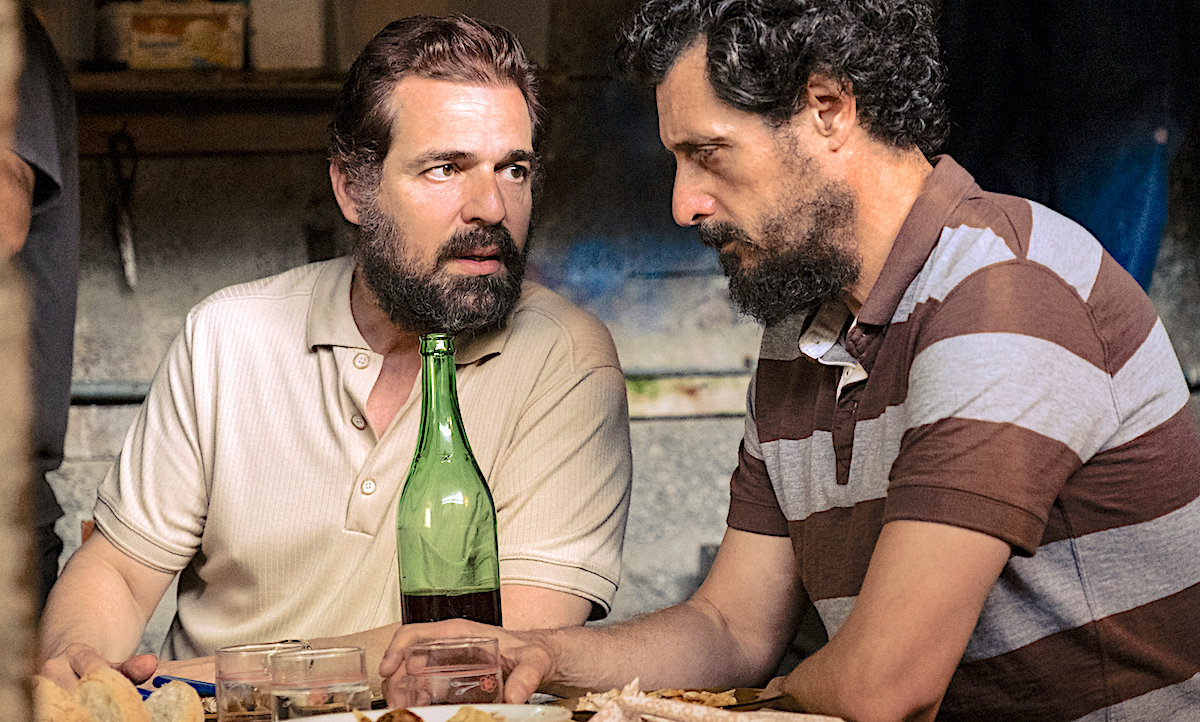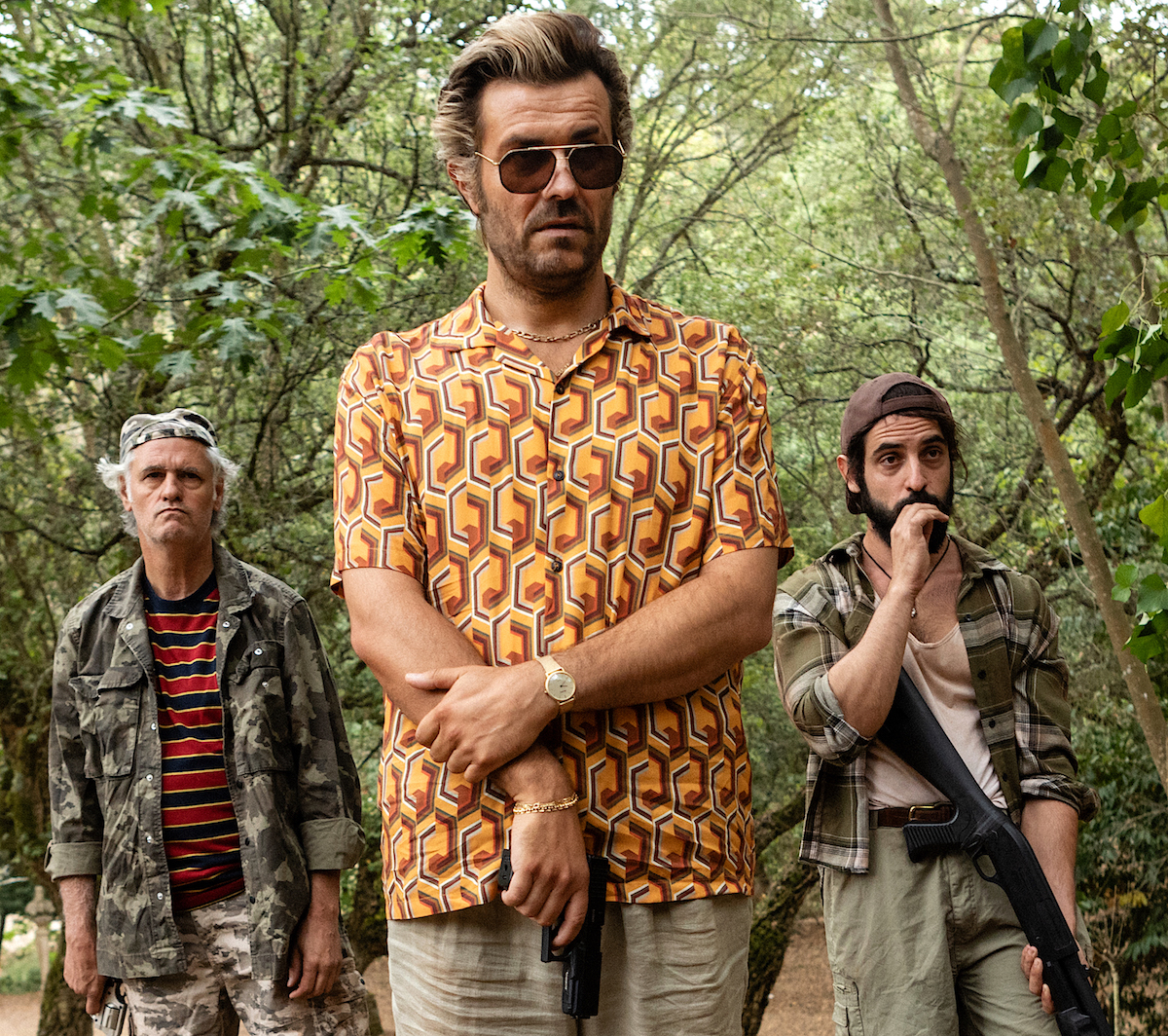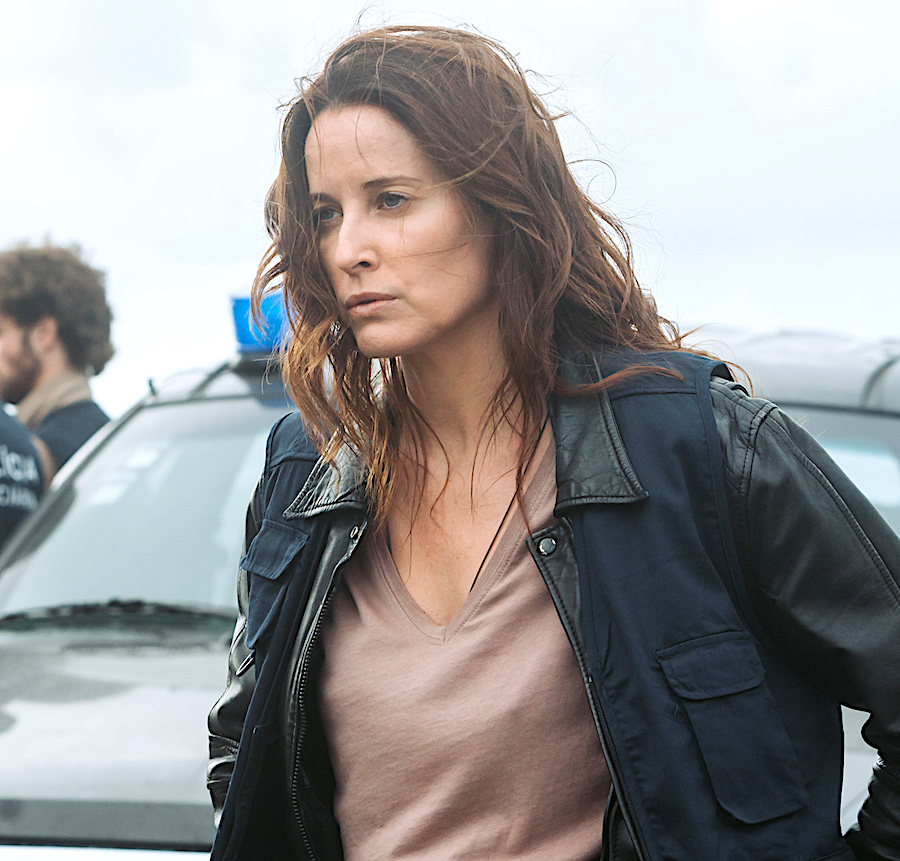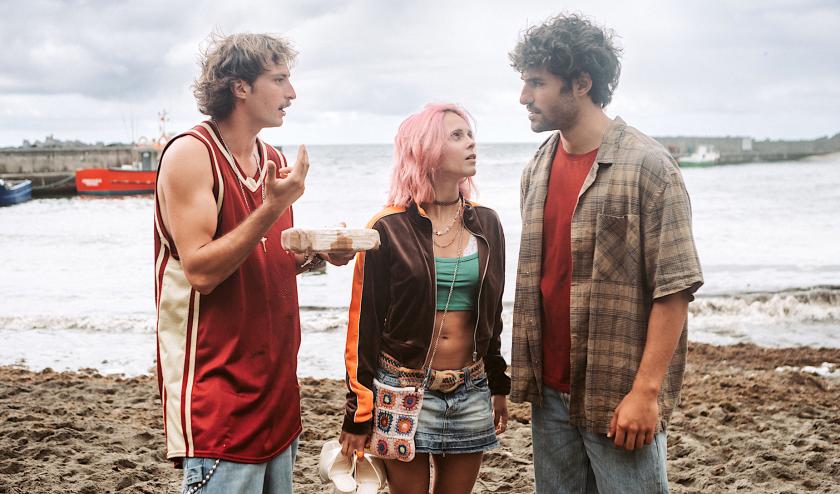When we consider the storied history of Portuguese television, we naturally think of… er… well, perhaps we'll get back to you on that. But in the meantime there’s Turn of the Tide (or Rabo de Peixe to give it its original title), Augusto Fraga’s surprising and captivating story of a tiny community in the Azores which suddenly finds itself awash with cocaine. It’s set in the titular village of Rabo de Peixe, and centres on four friends who are eking out their uneventful and unpromising lives in the picturesque but remote archipelago (the islands are about 1,000 miles out in the Atlantic from the Portuguese mainland).
The show extracts full value from its locations, with scintillating low-flying shots of rugged cliffs, turbulent waves crashing on the shore and verdant mountains climbing into the distance under huge, wide skies. However, claustrophobic village life revolves around a few shops, bars and narrow streets, and it’s no wonder that Eduardo (José Condessa) yearns to escape to the USA and build a new life.
 That opportunity unexpectedly presents itself when a yacht, crewed by two low-grade Italian hoodlums ferrying a hoard of cocaine back to their Mafia bosses in Italy, is forced to seek refuge in a violent storm. Some of the drug packages get washed ashore to be picked up by the flabbergasted locals, but some smart thinking by Eduardo leads him to the cave where the mobsters have managed to gather the bulk of their cargo. What Eduardo does with it, and the impact it has on the tiny, tight-knit community, forms the skeleton of the narrative.
That opportunity unexpectedly presents itself when a yacht, crewed by two low-grade Italian hoodlums ferrying a hoard of cocaine back to their Mafia bosses in Italy, is forced to seek refuge in a violent storm. Some of the drug packages get washed ashore to be picked up by the flabbergasted locals, but some smart thinking by Eduardo leads him to the cave where the mobsters have managed to gather the bulk of their cargo. What Eduardo does with it, and the impact it has on the tiny, tight-knit community, forms the skeleton of the narrative.
It’s a tale riddled with twists, feints and surprises, but the missing-cocaine story is the key which Fraga and his co-writers use to unlock the secrets and interconnections of the village. The narrative is awash with choices and dilemmas, and the tension between the lure of a magic mountain of money and trying to keep a grip on some kind of moral compass is a dominant theme. Eduardo has had to drop out of school to become a fisherman, since his father Jeremias (Adriano Carvalho, pictured above right with Pêpê Rapazote ) is going blind and can’t afford the necessary surgery. He’s never recovered from his wife’s early death.
 Eduardo’s close friends are Silvia (Helena Caldeira), a pink-haired wild child who is horrified that her father is the murderous and amoral drug dealer Arruda (Albano Jerónimo, pictured left), and her boyfriend Rafael (Rodrigo Tomás), a keen footballer who, thanks to injury, is never going to realise his dream of playing for Benfica. Then there’s Carlinhos (André Leitão), who has to put up with routine abuse from the locals for his flamboyant gayness, but handles it with unfailing good grace.
Eduardo’s close friends are Silvia (Helena Caldeira), a pink-haired wild child who is horrified that her father is the murderous and amoral drug dealer Arruda (Albano Jerónimo, pictured left), and her boyfriend Rafael (Rodrigo Tomás), a keen footballer who, thanks to injury, is never going to realise his dream of playing for Benfica. Then there’s Carlinhos (André Leitão), who has to put up with routine abuse from the locals for his flamboyant gayness, but handles it with unfailing good grace.
The snowdrifts of coke washing around the village are at first a source of hilarity and bouts of irrational exuberance, but this much illegal merchandise inevitably causes disastrous structural imbalances within the community. Arruda considers himself the local top dog and wants to muscle in on the lucrative action, but before long the mainland cops from Lisbon are swarming everywhere, led by Inspectora Frias (a wonderfully world-weary performance from Maria João Bastos, pictured below). She knows everybody is lying to her but is finding it hard to crack the villagers’ obstinate stone-walling.
 Worse, the Mafia want their drugs back. There’s some comic light relief in the shape of Francesco Bonino (Marcantonio Del Carlo), one of the shipwrecked couriers, but the going gets rougher when his mafioso brother-in-law Monti (Italian screen veteran Francesco Acquaroli) flies in to take command of the situation. He’s taking no prisoners.
Worse, the Mafia want their drugs back. There’s some comic light relief in the shape of Francesco Bonino (Marcantonio Del Carlo), one of the shipwrecked couriers, but the going gets rougher when his mafioso brother-in-law Monti (Italian screen veteran Francesco Acquaroli) flies in to take command of the situation. He’s taking no prisoners.
Happily for Eduardo, he has a fairy godfather in the shape of his Uncle Joe (Pêpê Rapazote), who’d been enjoying a criminal career in the USA until a judge deported him back to the Azores. His history with Eduardo and his father is sad and painful, and Joe is living out his days as a virtual hermit, but he sees a kind of belated salvation in giving Eduardo a shot at a new life. “Get busy living or get busy dying,” he orders. Whatever happens next is whatever happens next...















Add comment